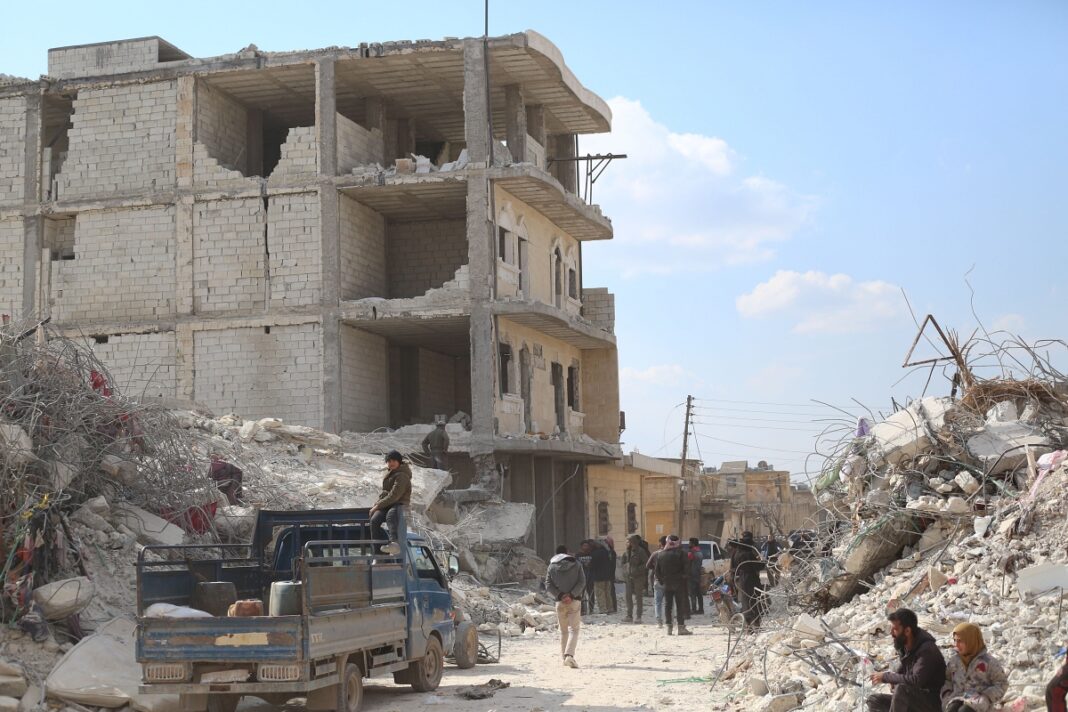Last October my monthly column was entitled ‘2022: It just feels different.’
In that column I remarked that the world seems to have changed in many ways over the period since 2017. I posed the question: “Is it just me, or does the world feel different? Really, weirdly, different?”
I went on to say that for me, there’s now a permanent sense of impending doom.
Now we’re in 2023 I can’t help but feel that for most of us the heightened anxiety that was induced in the four or five years preceding 2022 hasn’t subsided. If anything, it has multiplied exponentially already this year – and we’re only in March (scary face emoji).
Does the world feel different? Bloody oath it does!
Floods that devastate large swathes of land, displacing and killing people and leaving communities in chaos with the seemingly impossible task of rebuilding lives and infrastructure are what we see on CNN in overseas countries – not what we expect to see here in New Zealand.
And to be so hot on the heels of the unprecedented Auckland floods, one has to ask: “What have we come to?”
The geography and geology of Aotearoa provides a backdrop for amazing postcard photos, but, on the downside, a host of challenges for building roads and bridges and houses. Most New Zealand towns and cities are either sited on a coastline or a riverside – DANGER.
We’ve been hearing about the potentially catastrophic impacts of global warming for years now – the general consensus is that these impacts will have devastating effects in the future. When exactly? Well, nobody could really say … but soon.
It seems to me that ‘soon’ is actually ‘now’.
For how many years have we slagged-off the weather forecasters? But have you noticed that as of 12 February 2023 we have become far more wary of their warnings of impending rain and storms? I certainly have.
Forecasts that before 12 February may have been dismissed with a fair dollop of scepticism, are now feeling more real and anxiety inducing. ‘She’ll be right’ has been turfed out as a response, replaced with, ‘God, don’t let this one be the one that gets us!”
When a New Zealand town was deluged with rain and flooded on a Saturday, in the past we have tended to say, ’bad luck’, ‘bit of a freakish downpour that one’, ‘one in one hundred years’, ‘unprecedented’ … then on Monday we’ve continued to argue with the building inspector that, “the piles don’t need to be that deep”, and “the engineering calculations are ‘bloody over the top’.”
I suspect we won’t be arguing those points so vigorously anymore now.
Unfortunately, it seems to me we often need the wake-up call of a real disaster to spur us into action.
If Christchurch hadn’t happened, would we ever have embarked on the nation-wide rebuild we now call ‘earthquake strengthening’?
If Whakaari White Island had never happened, I expect tourist trips to the volcano would still be running.
If the Mosque shooting hadn’t occurred, I suggest I’d still be allowed to keep a stash of automatic ‘hunting’ rifles at home.
Out of each these disasters have come change for the better: better buildings, safer tourism and a lesser chance of local mass killings of innocent people.
The recent floods have bought out the best in people – communities have banded together to help those in need, people have given freely to those impacted, Canterbury people have been nice to Auckland people, and, perhaps most hearteningly for me, I hear an entire nation feeling for its effected people.
Even the opposition political parties have largely steered clear of political sniping in relation to the Government’s disaster response (so far).
Let’s build on this national spirit of caring and empathy and unite to find effective solutions to the climate change challenges our country now faces.
There will be change, there must be change, to how we build and where we build and the roads we use to travel to where we build. It won’t be done without some pain and some heartache, and it certainly won’t be done overnight, but let’s start now.
Looking to the devastation from the recent earthquakes in Turkey and Syria, one of the major causes of the massive loss of lives is linked to the huge number of non-compliant buildings in those countries – estimates suggest 7.5 million buildings in Turkey alone are illegally constructed (non-compliant).
Steel is expensive, so leaving it out of the construction process can be quite cost-effective in the short-term.
Here in New Zealand we are starting from a comparatively strong position then when considering how we change our planning procedures to better mitigate the effects of weather events in the future.
We generally have effective codes for building and infrastructure, good compliance and little corruption. If the codes need changing and the compliance needs to be administered differently, I like our chances of achieving those changes more than the chances of Recep Tayyip Erdoğan convincing Turkish builders not to cut corners by leaving out the steel.
As the Russia Ukraine war threatens to boil over into a world war, the death toll continues to rise in Turkey and Syria, and the destruction of the flood events her in Aotearoa New Zealand continues to overwhelm us, my concerns about a lack of decent restaurant service due to Covid-19-induced staff shortages seem fairly inconsequential – from now on no more restaurant complaints from me in 2023!


















